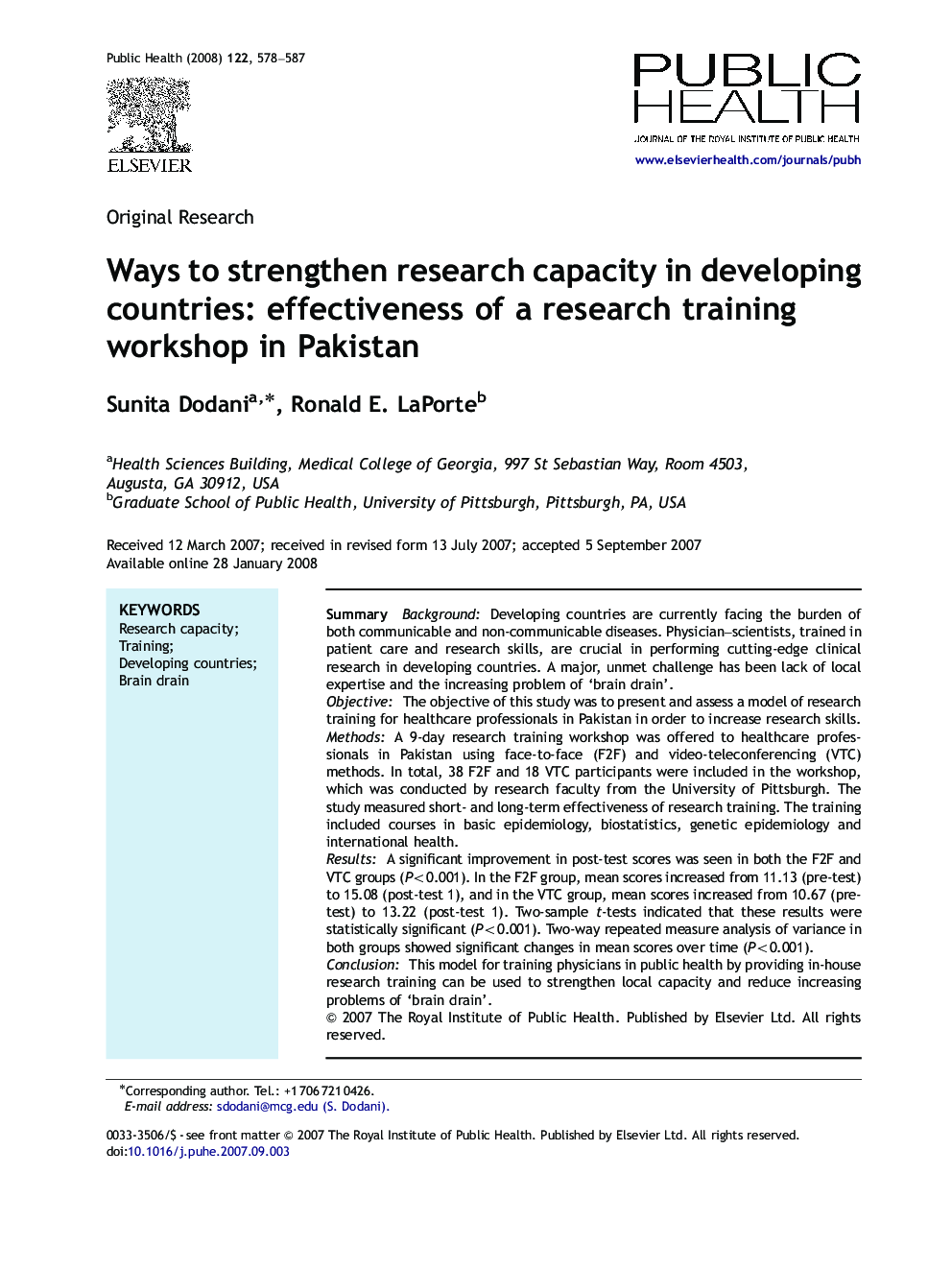| Article ID | Journal | Published Year | Pages | File Type |
|---|---|---|---|---|
| 1088348 | Public Health | 2008 | 10 Pages |
SummaryBackgroundDeveloping countries are currently facing the burden of both communicable and non-communicable diseases. Physician–scientists, trained in patient care and research skills, are crucial in performing cutting-edge clinical research in developing countries. A major, unmet challenge has been lack of local expertise and the increasing problem of ‘brain drain’.ObjectiveThe objective of this study was to present and assess a model of research training for healthcare professionals in Pakistan in order to increase research skills.MethodsA 9-day research training workshop was offered to healthcare professionals in Pakistan using face-to-face (F2F) and video-teleconferencing (VTC) methods. In total, 38 F2F and 18 VTC participants were included in the workshop, which was conducted by research faculty from the University of Pittsburgh. The study measured short- and long-term effectiveness of research training. The training included courses in basic epidemiology, biostatistics, genetic epidemiology and international health.ResultsA significant improvement in post-test scores was seen in both the F2F and VTC groups (P<0.001). In the F2F group, mean scores increased from 11.13 (pre-test) to 15.08 (post-test 1), and in the VTC group, mean scores increased from 10.67 (pre-test) to 13.22 (post-test 1). Two-sample t-tests indicated that these results were statistically significant (P<0.001). Two-way repeated measure analysis of variance in both groups showed significant changes in mean scores over time (P<0.001).ConclusionThis model for training physicians in public health by providing in-house research training can be used to strengthen local capacity and reduce increasing problems of ‘brain drain’.
